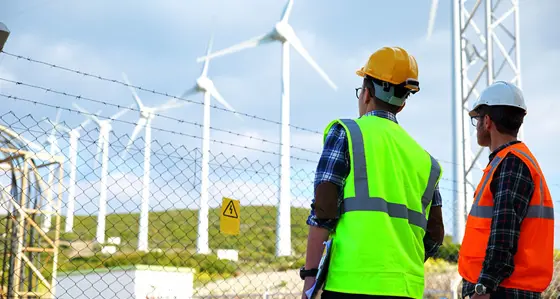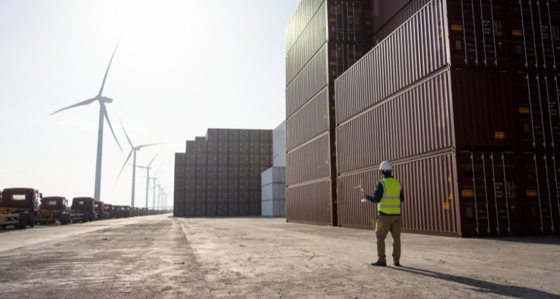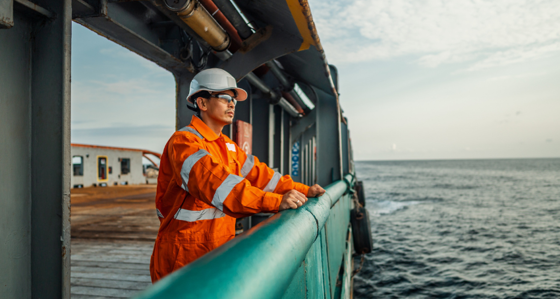
EU Methane Reduction Regulation: How large is the compliance challenge?
The European Union's Methane Reduction Regulation presents significant, potentially underestimated, challenges to LNG, pipeline gas, oil, and coal importers. But how significant are the consequences?
4 min read 16 May 2025
What is the EU Methane Reduction Regulation?
The European Union's Methane Reduction Regulation (EU/2024/17877) came into effect on 4 August 2024 and will have significant implications for the crude oil, natural gas, and coal value chains.
The objective is to increase transparency on the main sources of methane emissions in the energy sector and provide tools to reduce methane emissions both in the EU and globally1. As methane is the second largest contributor to global warming, having a global warming potential that is twenty-eight times greater than carbon dioxide, the regulation is a critical step towards achieving the block’s GHG emissions reduction targets. Additionally, the regulation supports the block’s commitment to the Global Methane Pledge signed in 2021 at COP 26 to reduce global emissions by at least 30% below 2020 levels by 2030.
The Regulation covers a range of measures designed to minimise the release of methane in fossil fuel operations, such as placing limits on routine venting and flaring across supply chains, mandatory methane leak detection and repair equipment for oil and gas facilities. This article will focus on the implications of the measurement-based MRV (monitoring, reporting, and verification) requirements across the fossil fuel supply chain.
Monitoring, reporting and verification implications – what is it and who does it effect?
The regulation imposes monitoring, reporting, and verification (MRV) obligations on importers operators, and undertakings defined as:
- ‘Importer’ – places natural gas originating from a third country on the EU market in the course of commercial activity
- ‘Operator’ - operates or controls an asset
- ‘Undertaking’ - carries out oil or fossil gas exploration and production, fossil gas gathering and processing, or gas transmission, distribution and underground storage, including with regard to LNG2
This designed to progressively introduce more stringent requirements for all regulated entities to ensure that entities importing fossil fuels into the EU market are subject to the same monitoring, reporting, and verification obligation as EU operators.3
For example, importers into the EU market are required to comply with the following increasingly stringent reporting requirements:
- By 5 May 2025, importers must provide reporting, largely qualitative, specified in Annex IX. Notably, this reporting requirement applies to both existing contracts and contracts concluded or renewed after the regulation entered into force on 4 August 2024
- From 1 January 2027, importers must demonstrate EU equivalence of country producer-level MRV measures and report producer-level methane intensities, for contracts concluded or renewed on or after 4 August 2024
- By 5 August 2028, importers are required to report the methane intensity of the production of crude oil, natural gas and coal that are imported into the EU market
- By August 2030, importers are expected to prove that the natural gas imported into the EU is below the maximum methane intensity, which will not be set by the commission until August 2029.
Why is this important for businesses operating within and outside of the EU?
While the regulation advances the EU’s climate targets, substantial compliance challenges remain for companies across the fossil fuel value chain.
1. Breadth and depth of the regulation creates substantial operational and financial obligations, including severe financial penalties for non-compliance
The breadth and depth of the regulation, coupled with on-going uncertainty, creates new operational and financial obligations as companies across the oil, gas, and coal value chains will need to develop new or expand existing capabilities. This may include digital solutions, best in class emissions measurement and management, and supplier engagement strategies. The consequences of waiting to develop these capabilities could be material. While the regulation does not impose a ban on oil, gas, or coal to the EU markets that fail to meet the regulations, financial penalties are used for enforcement – these could be as high as 20% of annual turnover. Therefore, all entities in scope of the regulation will need to develop new or advanced digital solutions to manage the additional data and reporting requirements, governance structures to ensure accuracy and traceability, and supplier engagement strategies to either collect data or negotiate contracts that comply with the regulation.
2. Ensuring traceable and transparent producer-level emissions in comingled gas market is complex
Traceability and transparency are known challenges of emissions reporting. However, the complex value chain of importing globally traded commodities, especially natural gas, presents an additional challenge when legal title of the product may change several times before reaching its final destination, and where exported volumes are sourced from commingled gas from a multitude of supply sources and trading hubs (such as for US LNG). In all instances, the importer is responsible for ensuring the required information is passed down via the entity from whom they are buying. This presents a unique challenge for importers - to be able to ensure and verify the methane intensity of the imported gas.
"The EU Methane Regulation is a globally transformative methane legislation but with a significant implementation challenge attached. The incomplete nature of the rules created many unknowns still to be addressed. Fortunately, certified gas is emerging as the pragmatic solution based on its track record. I believe over the coming months the EU and Competent Authorities will clarify compliance pathways. Companies should start up implementation teams today."
Georges Tijbosch, CEO of MiQ
While firms are already taking measures to comply with the near term compliance deadlines, additional capabilities, including digital solutions and data management infrastructures, must be developed to comply with increasingly stringent regulation and be flexible to adapt to the evolving requirements.
At Baringa, we have first-hand experience supporting our clients to develop robust capabilities that balance compliance and commercial requirements when implementing climate policies and standards.
Get in touch with Elizabeth van der Heijden or Mashal Jaffery to find out more about how to prepare your business for the EU Methane Regulation, or read our latest articles on digital transformation and decarbonisation in the energy sector, seven steps for a successful emissions strategy, embedding emissions measurement and reporting and measuring emissions across complex value chains.
1 European Commission, New EU Methane Regulation to reduce harmful emissions from fossil fuels in Europe and abroad
2 Regulation (EU) 2024/1787 Regulation (EU) 2024/1787 of the European Parliament and of the Council of 13 June 2024 on the reduction of methane emissions in the energy sector and amending Regulation (EU) 2019/942Text with EEA relevance.
3 European Commission, New EU Methane Regulation to reduce harmful emissions from fossil fuels in Europe and abroad
Our Experts


Related Insights

Reporting scope 2 emissions: the GHGP's new consultation
The current global standard for how companies report their emissions - set by the Greenhouse Gas Protocol - has long been criticised for enabling uncredible claims to Scope 2 emission reduction. read on to see what this means for you
Read more
The inertia challenge in renewable energy
The shift to renewables is reshaping grids, replacing traditional plants with wind, solar, and batteries. This transition challenges grid stability with lost inertia.
Read more
Progress amid uncertainty: How complex industries are driving decarbonisation
From telecoms and retail to the built environment and critical infrastructure, our vibrant discussion focused on how companies are driving forward their renewables strategies.
Read more
Fuelling maritime decarbonisation: The role of regasification terminals in unlocking bio-LNG
The maritime sector is under increasing regulatory pressure to reduce its environmental impact, with frameworks pushing for reductions in greenhouse gas emissions through renewable fuels, while biofuels and certification systems play a crucial role in achieving these goals.
Read moreIs digital and AI delivering what your business needs?
Digital and AI can solve your toughest challenges and elevate your business performance. But success isn’t always straightforward. Where can you unlock opportunity? And what does it take to set the foundation for lasting success?